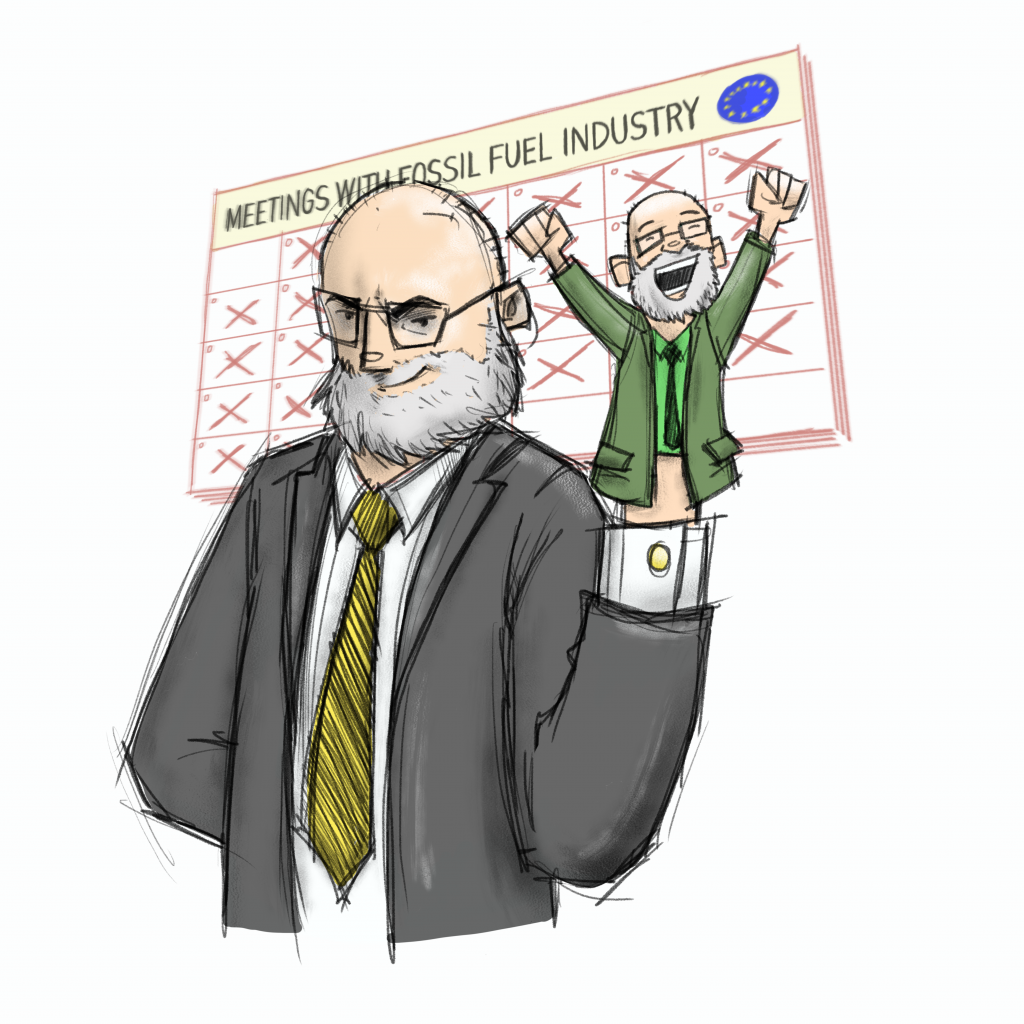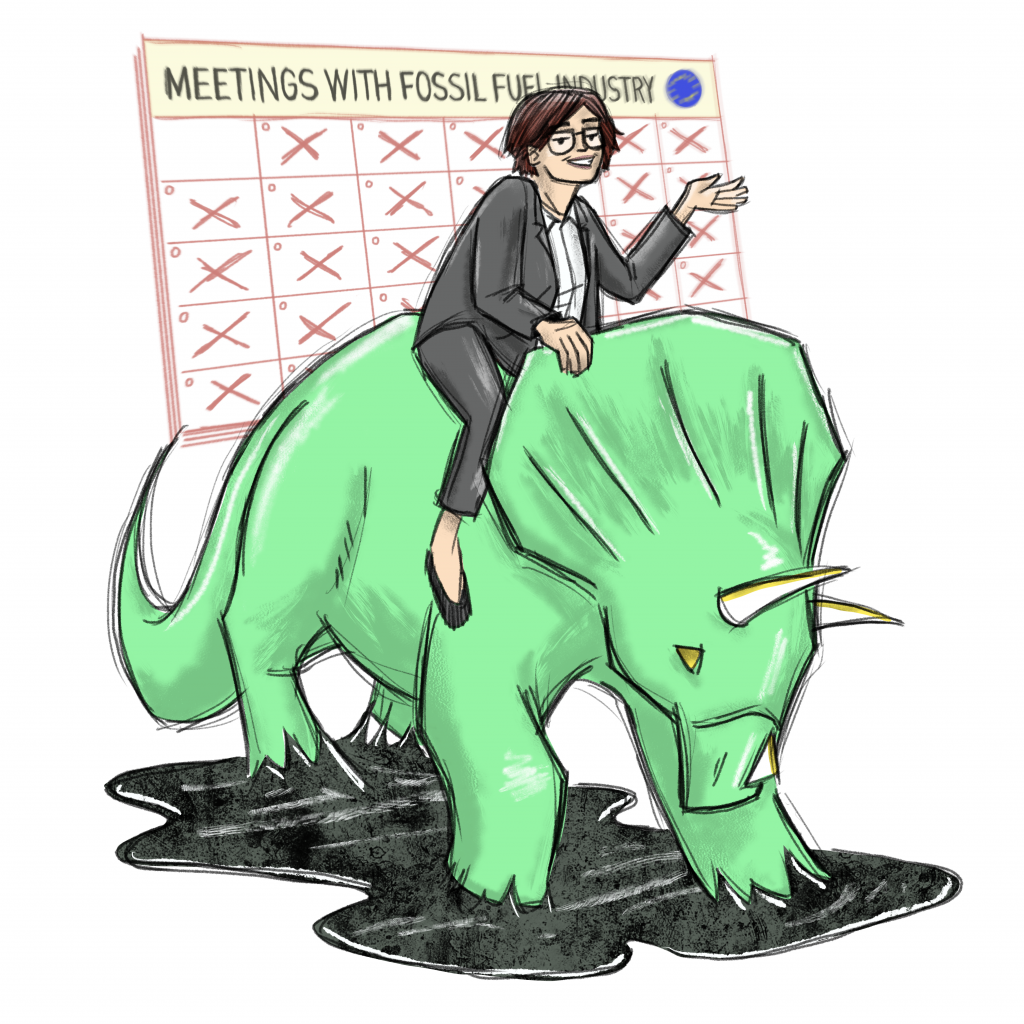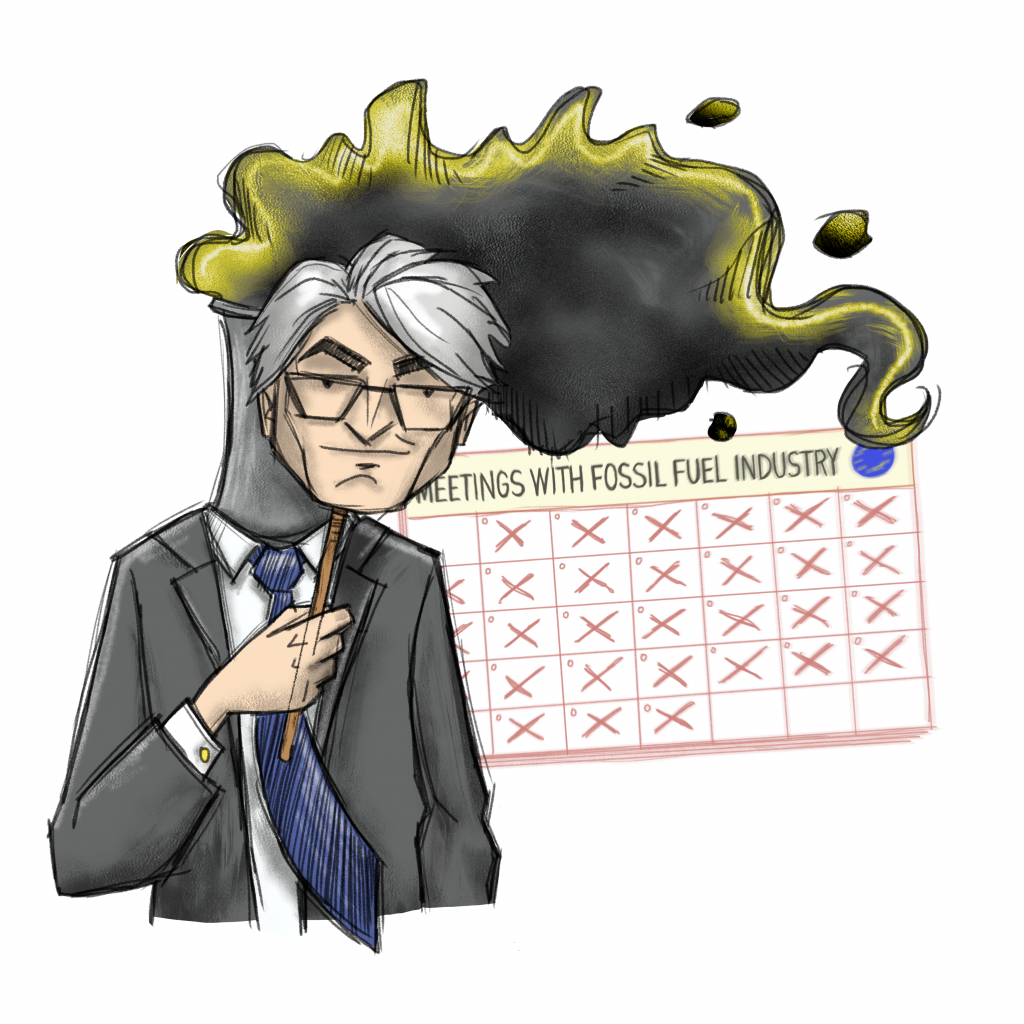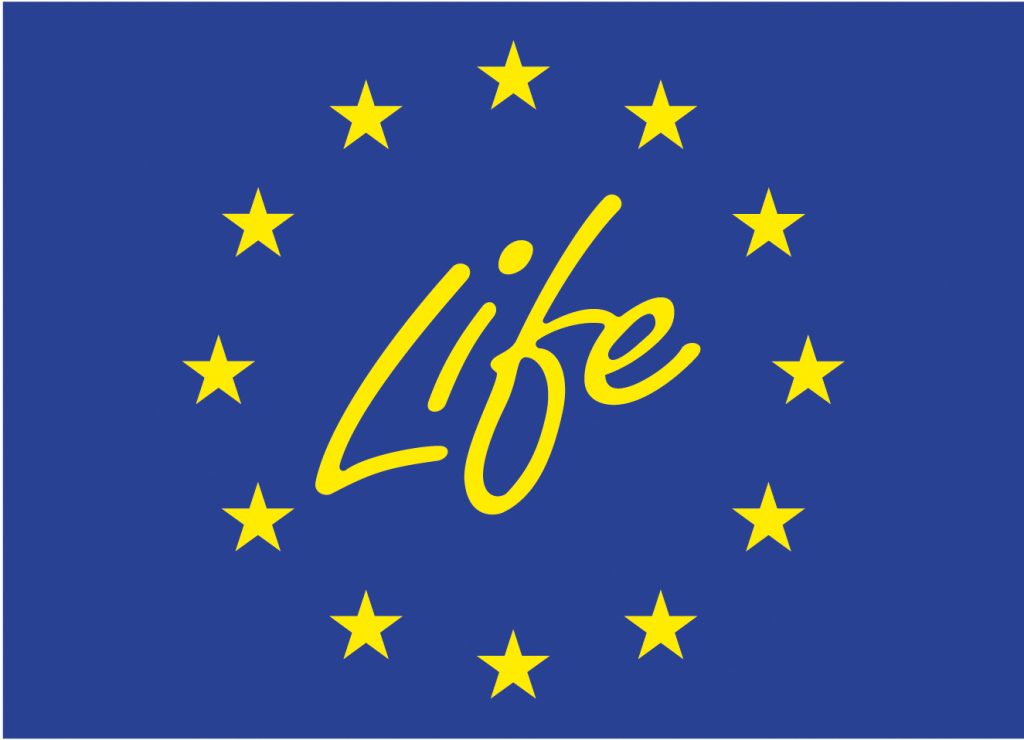
The Von der Leyen Commission hit their mid-term mark, a great opportunity to look at who’s at the forefront of driving their energy ambitions.
“Democracy is more than voting in elections every 5 years. It is about having your voice heard and being able to participate in the way society is built.” – These words said by President Von Der Leyen in September 2019 might sound as if they were meant for European citizens and their needs, but after analysing the Commission’s list of meetings since they took office in December 2019, it’s more than clear that these words were meant for an entirely different audience: fossil fuel companies and their interest representatives.

In a period of 2,5 years, between December 2019 and May 2022, the von der Leyen’s commission engaged in a staggering number of 500 meetings with representatives and lobbyists of oil, gas and coal companies. That’s close to having 1 meeting every working day.
Our analysis provides an overview of the sheer amount of lobby meetings that were held and the results are mind boggling. Even though von der Leyen’s commission has supposedly prioritised fighting climate change in their policy making, they’ve put the culprit in the driving seat. The fossil fuel industry is the biggest contributor to climate change and should be barred from interfering with the development of EU climate and energy policies.
Why does this matter?
Lobbying is engrained in the culture of Brussels decision making and asking for ‘expertise’ to industry is an everyday occurrence in the European Commission. Companies’ main purpose is to generate profits for their leadership and shareholders. And therefore, they will naturally oppose measures that might get in the way of those profits. Lobby meetings are a huge factor in corporate capture, whereby a policy issue, agenda or new legislation is influenced in the extreme, often from the beginning and on an ongoing basis, by corporate interests, and should be used sparingly by decision makers.
How effective the fossil fuel industry’s lobbying practices are in the EU is exemplified by the sudden uptake of hydrogen, a type of energy that was hardly thought of and barely part of the energy mix a couple of years ago, but is now heralded as the energy source of the future. With the promise of green hydrogen (produced from renewable energy), billions of euros are invested in infrastructure for an energy source that’s mainly produced from gas or other fossil fuels – playing directly into the hands of the oil and gas majors.
Another shining example of the Commission’s dependency on the fossil fuel industry came right after the Russian invasion of Ukraine. Who did President von der Leyen turn to for advice when the EU sought to reduce its dependency on Russian oil and gas? Exactly, the big European oil and gas companies! The same companies that created the EU’s dependency on Russian fossil fuels in the first place by pumping gas and oil in Russia, working with Russian partners, such as Gazprom and Rosneft, and building new pipelines from Russia to the EU, such as Nordstream2.
The same companies that are raking in the profits whilst feeding Putin’s war machine, are asked to advise von der Leyen on how to break the EU’s dependency on Russian oil and gas. So, is it any wonder that the REPowerEU agenda – the EU’s plan to get off of Russian gas – lists hydrogen, gas and LNG from other parts of the world, benefitting equally repressive regimes, as solutions?
A stronger example of the hold that fossil fuel companies have over EU policy making is hard to imagine. Meetings with policymakers are just one of the many tools that the fossil fuel industry uses to hold on to its power. It puts them in the position to whisper their greenwashed messaging into decisionmakers’ ears and influence policies designed to steer us away from fossil fuels.
It’s a powerful tool that they’re using nearly every working day.
Who are the lobby-friendliest Commissioners?
Catching up with the fossil fuel industry is almost part of the daily routine. Between December 2019 and May 2022, the Commissioners and their cabinets had a total of nearly 500 meetings with fossil fuel companies or organisations with fossil fuel members – that’s just shy of one meeting every working day! The top-scoring members of von der Leyen’s 27-strong Commission, who managed to arrange nearly a dozen meetings with fossil fuel companies, are:
#1 Executive Vice-President Timmermans:

The European Green Deal Commissioner and his cabinet met 65 times with fossil fuel companies. The No. 1 fossil fuel company on their agenda was Shell, with a staggering 19 meetings, followed by coal power giant PGE and natural gas storage operator Fortum, each with 6. Most frequently discussed subjects were the European Green Deal and hydrogen.

We know that there was an enormous amount of lobbying around the European Green Deal. The fact that Timmermans was so open to meet with representatives of fossil fuel giants explains why the outcome of the Green Deal process was so disappointing/lacked a focus on justice and promoted green capitalism.
Hydrogen: the big winner of this mandate?
One of the main topics all those meetings were about is a topic that, a few years ago, was not on anybody’s mind: hydrogen. Now hydrogen (whatever colour it may be), is part of everyone’s vocabulary and at the forefront of the Commission’s energy transition plans.
This is the result of a huge lobby campaign led by the fossil fuel industry in Brussels and all over Europe, amassing huge amounts of money in public subsidies and investment in the process.
Billions have been promised to the fossil fuel industry that lock us into a fossil fuelled future, instead of the investments in community energy and renewables that we truly need.
If meeting fossil fuel companies directly wasn’t enough, Frans Timmermans and his cabinet were happy to engage in discussions with lobby groups that have one or more fossil fuel company among their members. Since the beginning of the mandate, they had an additional 114 meetings on climate and energy issues with interest representatives that have one or more fossil fuel company members.
Among the most popular were Hydrogen Europe (recently linked to the scandal around the creation of the Hydrogen alliance), the International Association of Oil & Gas Producers (IOGP), and BusinessEurope.
Renewable energy lobbies with fossil fuel members
rack-up yet more meetings
There is one particular type of organisation with fossil fuel members that deserves special attention: renewable energy associations that have been infiltrated by the fossil fuel industry.
Timmermans and his cabinet, for example, had at least 18 additional meetings on climate/energy issues with renewable energy trade associations that have one or more fossil fuel company members, while Simson and her cabinet had an additional 12.
This included EPIA SolarPower Europe, whose members include Eni, Galp and TotalEnergies and WindEurope, whose members include Shell, Exxon, Repsol, Equinor.
#2 Commissioner Simson:

The Energy Commissioner and her Cabinet had 56 meetings with fossil fuel companies. The No. 1 fossil fuel company in her team’s agenda was Shell, with 8 meetings, followed by gas producer ENEL, with 7, and gas grid operator Enagás, with 5. Most frequently discussed subjects were hydrogen and gas.

Simson and her cabinet had an additional 52 meetings on climate and energy issues with organisations that have one or more fossil fuel company members. Top spots went to Hydrogen Europe, BusinessEurope, and the Roundtable for Europe’s Energy Future.
Ukraine war sees fossil fuel firms
ramp up lobbying of Energy Commissioner
Following Russia’s invasion of Ukraine on 24 February 2022, Energy Commissioner Simson and her cabinet met with 9 fossil fuel companies, including 2 meetings with Shell. That’s double the average frequency of fossil fuel company meetings she’s had over the 2.5 years since she’s been in office. At least 5 of these meetings related to Ukraine, fossil fuels from Russia, security of gas supply or energy prices. A further meeting with IOGP focused on the oil and gas lobby’s “ability to help” diversify gas supplies and “diminish” fossil fuel supplies from Russia.
There is a risk that the devastating war in Ukraine could be used as a justification to increase and lock-in fossil fuel consumption from other, sometimes repressive regimes in the world – as opposed to improving Europe’s energy security through domestic, decentralised renewable energy production such as community energy, energy efficiency and savings.
This has already happened with the gas-buying platform set up by the European Commission to diversify gas supply. It was revealed that the CEOs of major oil and gas companies like Shell, BP, Total, and ENI – most of them already familiar to Commissioners from previous lobbying – met with President von der Leyen to make sure they would have a say in any step the Commission would take to get away from Russian gas and that those steps wouldn’t hinder their profits. Von der Leyen responded to that by announcing that she would set up an Industry Task Force with these companies to determine which measures are feasible to make the EU independent from Russian oil and gas.
The energy transition Europe so urgently needs – to help prevent climate crisis and to reduce energy dependency on Russia – risks being slowed down and redirected if decision-makers’ ears are bent towards fossil fuel companies with a legal duty to chase profits for their shareholders.
#3 Commissioner Valean:

The Transport Commissioner and her Cabinet had 14 meetings with fossil fuel companies. The No. 1 fossil fuel company in the diary of Commissioner Valean’s team was ExxonMobil, with 3 meetings, followed by TotalEnergies, BP and Neste, each with 2. Most frequently discussed subjects were mobility, Fit for 55 and hydrogen.

Valean and her cabinet had an additional 9 meetings on climate and energy issues with organisations that have one or more fossil fuel company members. Top spots went to the Independent Fuel Suppliers and FuelsEurope.
#4 Commissioner Breton:

The Internal Market Commissioner and his Cabinet had 13 meetings with fossil fuel companies. The No. 1 fossil fuel company claiming tete-a-tetes was ENEL, with 3 meetings, followed by Engie, Eni and Neste, each with 2. Most frequently discussed subjects were Covid-19 and hydrogen.

Breton and his cabinet had an additional 13 meetings on climate and energy issues with organisations that have one or more fossil fuel company members. Top spots went to FuelsEurope and the European Chemical Industry Council – CEFIC.
Meetings not the only channel of influence:
Commissioner Borrell and his Eni advisor
Meetings are not the fossil fuel industry’s only channel of influence. Conflicts of interests in general and revolving doors in particular are a very important way for industry to infiltrate decision making. That is why it’s important to look beyond just lobby meetings.
The European High Commissioner for External Affairs Josep Borrell, for example, may have scored low on the fossil fuel meetings front, but he still chose a close collaborator of a fossil fuel giant to become one of his key advisers on foreign affairs issues. In early 2020, despite the flagrant conflict of interest, Borrell appointed Natalie Tocci – who sits on the board of directors of Italian oil and gas company Eni – as a special adviser. It was only after months of campaigning that Tocci’s appointment was revoked. The fact that it occurred in the first place, however, shows just how badly we need Fossil Free Politics.
Moving towards Fossil Free Politics
The shocking number and frequency of fossil fuel meetings held by Commissioners and their cabinets – up to one per working day – clearly illustrates the need to cut fossil fuel interests out of politics in order to ensure policymaking that puts people and planet over profits.
There is a long and well-documented history of fossil fuel companies and their lobbyists delaying, weakening and sabotaging climate action, and subverting energy policy in their own interests. The fact that hydrogen was one of the main topics discussed in the meetings of all four of the most fossil-friendly Commissioners, when it was a non-issue 2 years ago, is a case in point and only showcases how the fossil fuel industry is successfully latching on to hydrogen as a lifeline for fossil gas and its infrastructure. The recent initiative of President von der Leyen to set up a platform with big oil and gas majors to advise her on how to diversity EU energy policies is another striking example of the fossil fuel industry being in the driving seat on EU energy policies.
Recently, even the IPCC spoke out against fossil fuels in its last report when it pointed at “the power of incumbent fossil fuel interests to block initiatives towards decarbonization” as an obstacle to the urgently needed climate action.
With the threat of catastrophic climate change looming, and Russian aggression once more highlighting the need to transform Europe’s fossil fuel dependent energy systems, a firewall between the fossil fuel industry and decision-makers is more urgent than ever.
In order to pave the way for effective green climate- policymaking, we need to cut fossil fuels out of policymaking. If you’d like to know more, visit the Fossil Free Politics website.
Research by Rachel Tansey
Full methodology and list of data available upon request.

Friends of the Earth Europe gratefully acknowledges financial assistance from the European Commission. The sole responsibility for the content of this document lies with Friends of the Earth Europe. It does not necessarily reflect the opinion of the funder mentioned above. The funder cannot be held responsible for any use that may be made of the information contained therein.
Related Content
We think you’d also like:

Fossil Free Politics
Politicians should make climate laws to protect people – not please the fossil fuel industry. We need to cut fossil fuel interests out of our politics, similar to existing restrictions on the tobacco industry.






